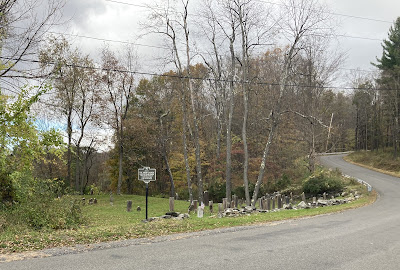Nobletown Or Hillsdale - "Seventeen Miles To A Miserable Village"
The German column of the Convention Army marched seventeen miles on October 24, 1777, then stopped for the night near "... a miserable village." It would be their last night in New York (in 1777 at least), or perhaps their first night in Massachusetts. Their march "on hilly and stony roads" had taken them well into the Taconic Mountains, and to "... Nobletown, a village undeserving of its beautiful name." [1] Their stay was not pleasant, as: "... we had to sleep in the open air for want of houses; we got so covered with frost during the night that we looked like great sugar dolls." [2]
The Germans were not the first or the last Revolutionary War travelers to stop in the village. Impressions were mixed.Four days after the German column spent the night, Brigadier-General William Whipple, who was escorting Lieutenant-General John Burgoyne to captivity in Cambridge, Massachusetts, passed through and was not impressed. While Burgoyne likely spent the night of October 28th somewhere in Nobletown, Whipple continued on, explaining in his journal: "set out from Kendar Hook in the morning arrived at Noble Town about 12 which is 18 miles rained Exceeding hard the whole way but the accommodations being very bad I left the company at 3 o'clock and rode to Barrington". [4]
"Nobletown" doesn't appear on any modern maps of the area. According to The Historians of Hillsdale, up until 1783 there was a dispute as to whether the town was in New York or Massachusetts. Today, it is the village of Hillsdale, New York.
Nobletown may be where the German column received its "apostolic blessing", rather than at either the Reformed Dutch Church in Claverack, or Saint Peter's in Spencertown. That pastor, one wrote, had been a stocking weaver before he became a minister, something that "...happens in America, I am sorry to say, almost only in the Evangelical Church". [5] Today, as seen in this photo, the church is gone and only its cemetery remains, just north of the intersection of Harlemville and Wolf Hill Road in Hillsdale.




Comments
Post a Comment